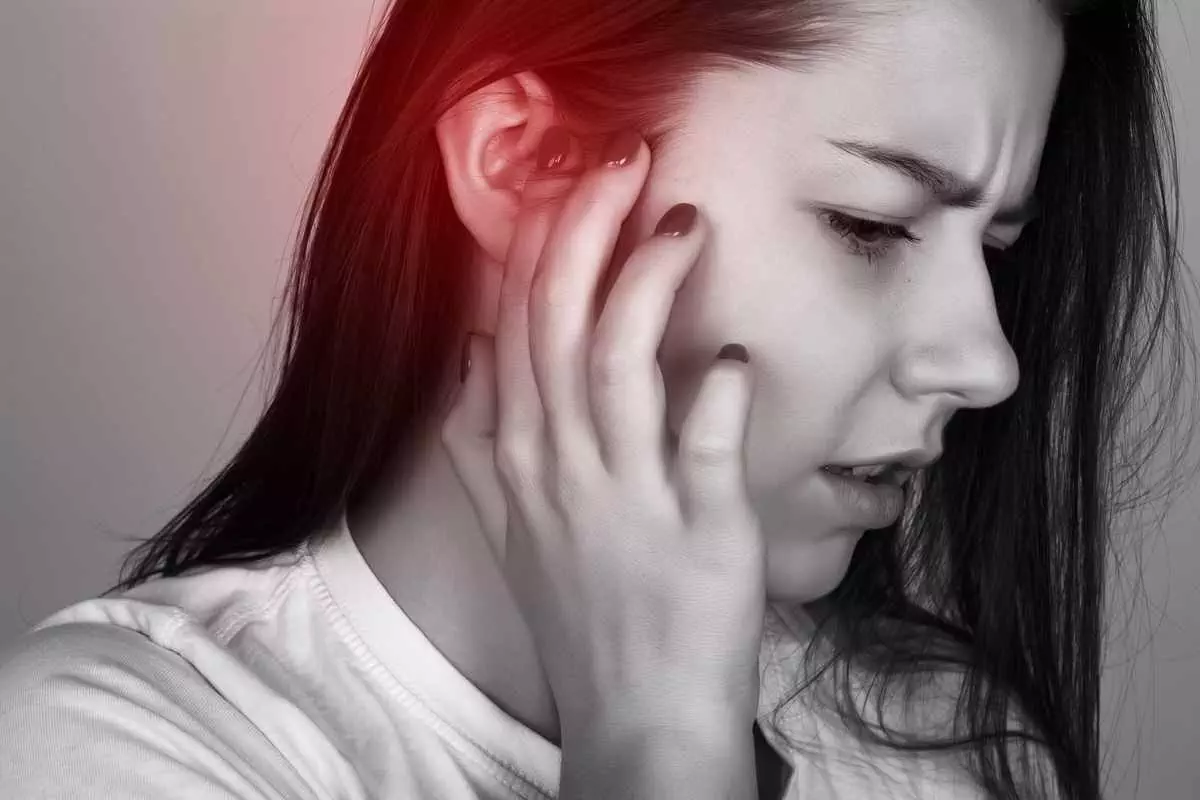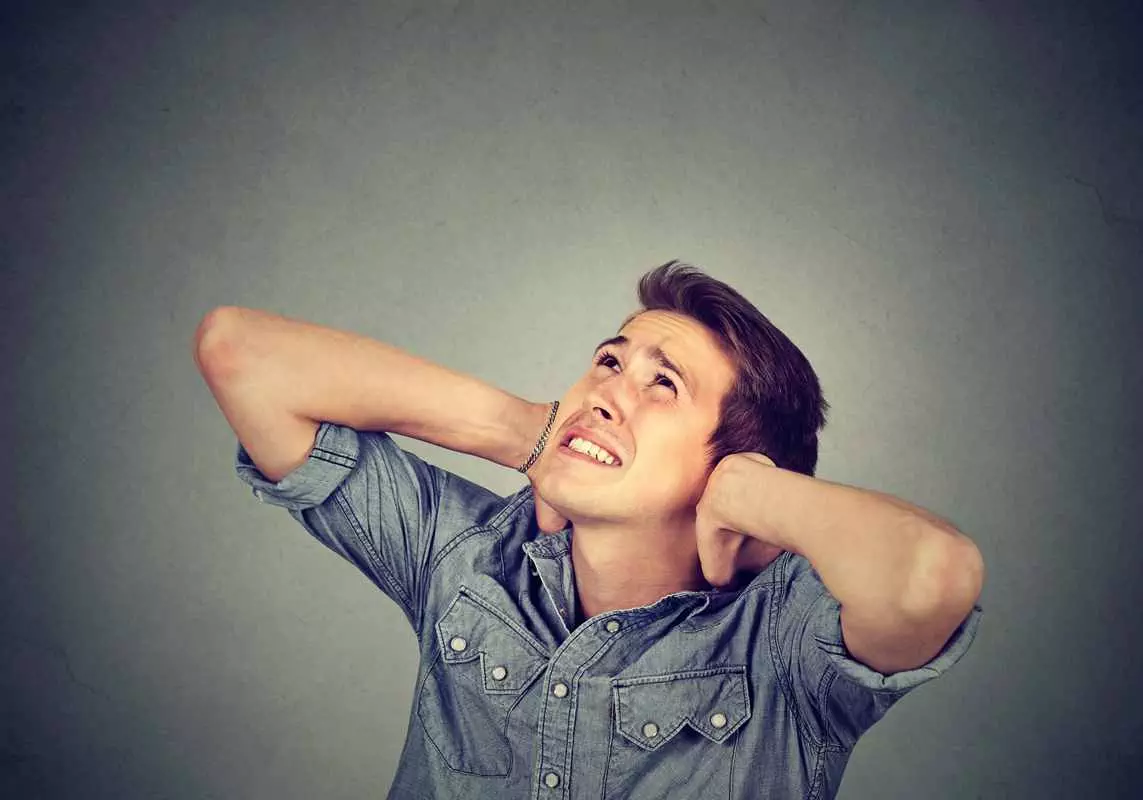

Why do earplugs hurt my ears? In this article we cover the pros and cons of wearing earplugs and why they might cause your ears to hurt. If you've never worn earplugs, you may wonder if it's worth it or if you can live without them.
You love listening to music, but you don't want to suffer from a hearing loss. Earplugs are one of the best ways to protect your ears from noise. Learn how to use earplugs correctly and protect your ears.
If you want more information on this, then read this article!
Earplugs have long been promoted to help avoid noise-induced hearing loss (NIHL) and protect the ears from noise trauma. Many people use earplugs during sleep because of a loud snoring spouse or hypersensitivity to nighttime noises and limiting exposure to working noise or other annoying noises.
Their devotion to the ears should be lauded. However, earplugs' proper use and the awareness of limitations and attention are also important to your hearing protection. Earplugs are generally safe, but they do come with a few potential side effects, mainly if you use them regularly.
The reasons earplugs hurt your ears are:
Can the constant use of earplugs hurt my ears? Actually, yes, humans are distinct. The ear canals link the hearing aid of the inner ear to the outside environment. They line these ear canals with skin that have sweat glands, hair follicles, and wax-producing glands
Many people develop ear canal pain or itching because of inflammation of this skin and its glands. Keeping the ear canal "plugged" for long hours does three potentially harmful things:
We also see patients who feel a burning "bruised" feeling from even slightly tight plugs. An audiologist can build custom-made earplugs, which can help to prevent damage and waterproof the ears. It is also possible to make personalized ear buds. A customized fitness creates less pressure and discomfort.
People who have recurring ear canal infections sometimes get inadequate ventilation caused by the plug. Doctors recommend that some patients with frequent ear canal infections avoid occlusive earplugs altogether. Doctors recommend "over the ear" sound protectors and headphones in this case.
Affiliate Disclaimer
As a Amazon Affiliate, we earn from a qualifying purchase
In A Hurry?
If you require the best hearing protection and do not want to read the entire article, below are my recommended products.
| Preview | Product | Rating | |
|---|---|---|---|

|
3M WorkTunes Connect Hearing Protector with Bluetooth Wireless Technology, 24 dB NRR, Hearing... | Buy Now |
Last update on 2023-11-28 / Affiliate links / Images from Amazon Product Advertising API

The proper use of earplugs will reduce the chances of health risks. These instructions will help you use the earplugs correctly, whether silicone, custom-molded or pre-molded.
Ensure you change your earplugs every few days after using disposable earplugs, particularly silicone. You can use a toothbrush and hydrogen peroxide for daily cleansing, mild soap, and warm water to improve the performance. Before using them again, please ensure you allow them to dry totally or wipe them with a clean, dry rag. The bacteria are prone to excessive dirty earplugs and debris and can be taken into the ear canal. Furthermore, earwax can make molded and pre-molded earplugs stiff and damage the ear canal.
Earplugs inserted wrongly won't serve you as well as they should. It might seem a simple task to stuff the earplug into your ear, but that's not healthy. There is a proper way to insert foam earplugs.
Foam, silicone, custom, Hi-Fi, wax, vented, and non-vented are today's available earplugs. The earplug you use depends on where or how you will use it. You possibly want to buy personalized earplugs if you are regularly exposed to noise.
The noise protection rating should not only be ensured, but custom earplugs fit more quickly and are less likely to cause irritations, which can cause infections, compared to over-the-shelf earplugs. Ensure they are waterproof – whether silicone or wax or if they are earplugs used for swimming or surfing. Hi-Fi earplugs are designed for musicians that enable them to hear the sounds they want to hear. Vented or unvented earplugs depend on the strain to which the ears are positioned. Typically, vented earplugs are used for water sports.
The loudness of a sound is measured by a decibel. As the number increases, the noise is higher. More than 120 decibels will destroy your hearing instantly. The noise reduction rating (NRR) is a calculation of the decibel level blocked by earplugs. 33 NRR is the highest rate.
The ranking on the earplug package is not as straightforward as it appears. If the box says 33, you can expect protection more along the lines of 16 decibels. The combination of earmuff and earplug can yield impulse peak reductions of over 50 dB.
Earwax may appear to be an irritating and meaningless component of the ears. Earwax is made from the ear secretions and is part of the ear's natural system. Earwax protects your ears' skin, stimulates, prevents bacteria, and helps to purify your ears. Earwax usually slips out of the ears taking all the dirt without your knowledge. But the use of earplugs can stop up this natural process and lead to a buildup of earwax. It is painless when your ears are stuffed, but it doesn't mean that you should ignore it.
Hearing loss is typically painless too. Even though it causes a momentary loss of hearing, it does not imply that your brain's implications are not as severe as somebody with permanent NIHL. The loss of hearing has been demonstrated to have various physical and emotional effects.
The probability of Alzheimer's and dementia is increased. Hearing can be compromised by built-up earwax, so use ear wax removal best practices or see a hearing health professional clean and check your ears.

An earplug is an inexpensive, protective, and convenient way to protect your hearing. It prevents noise from entering your ear without stopping sound waves that would otherwise travel through the air. Although using an earplug does not completely eliminate all noise, it can significantly reduce one’s risk of developing hearing damage and tinnitus from exposure to loud noises.
However, when used improperly, this protection could cause harm or discomfort as well. This article will teach you important safety precautions so you can use earplugs correctly and avoid potential pitfalls such as pain or dizziness."
If you are working in a noisy environment, or if you are going to be exposed to loud noises, then earplugs should be one of the tools that you should keep with you for your own use.
Earplugs don’t protect against all sounds. They can’t block out the sound of a thumping heartbeat or a baby crying, but they do protect against harmful airborne noise which can cause serious injury and impairment to hearing and overall health.
Exposure to loud noises is like walking through fire – it has to be done occasionally in order for your body to be able continue functioning well. Anyone who is required to work in a noisy environment should have earplugs on hand. While they may not protect against all sounds, they can reduce the volume of those that are still harmful.
The best way to tell if your earplugs are clean is by carefully inspecting the tip before putting them in your ears. If it is dirty, it will hurt when you put them in and pull them out because the dirt will scratch your skin and cause pain.
Please Note: Just because an ear defender is marked, for example, "Gunshot" - it will still cover other things, like "explosions"
Last update on 2023-11-28 / Affiliate links / Images from Amazon Product Advertising API
Meniere is an inner ear disorder mostly affecting one ear. The disease causes a sense of spinning, known as vertigo. It has other symptoms like headaches, hearing loss on the affected ear, ringing ear, and dizziness.
This condition is not painful. But specialists regard it as a chronic disease. The attacks are not frequent, but when they occur, they last for some hours. There is no specific cause, but many factors trigger Meniere, including head injury and loud noise.
Ears are sensitive. Pain in the ear normally occurs in children though even some adults have experienced it. There are different causes of pain inside your ear.
Excess wax is the most common cause of ear pain. Wax gets trapped inside your ear, and it hardens. Trying to remove it using cotton buds only makes it worse and makes your ear hurt more.
Your ear may also hurt because of an infection, sinuses, air pressure when traveling via air, foreign objects, or you may have a swimmer's ear.
Excess pain in your ear is not only uncomfortable but needs attention. A specialist can determine the cause of the pain.
A severe headache can be a sign of many abnormalities, including ear infections. When your neck feels stiff, or you feel pain around your ear muscles, see a doctor. It's even worse if you see blood or pus coming out of your ear.
Severe ear pain that is not consistent might be an alarm of a damaged ear. It gets further to high temperatures or dizziness, especially in children. Adults also experience drooping of facial muscles, which can be an ear infection. Don't wait for the pain to get worse. It can cause hearing loss.
If you require more information, please check these references
Hearing Protection In The 21st Century Theyre Not Your Fathers Earplugs Anymore Pdf , article, "researchgate.net", retrieved on, Mon 09-November-2020
“There are more important things to worry about”: attitudes and behaviours towards leisure noise and use of hearing protection in young adults , article, "www.tandfonline.com", retrieved on, Mon 09-November-2020
EAR OR BRAIN? , article, "finearts.illinoisstate.edu", retrieved on, Mon 09-November-2020
Please enter search query below:
EarsToday is a participant in the Amazon Services LLC Associates Program, an affiliate advertising program.

Experience : Hi, I am Nick, and I have suffered with ear problems my whole life, mainly tinnitus. I have tried a lot of products to help protect my ears over this period, and several devices to block out the constant ringing
“Are you having problems hearing? If so, those around you already know it. Hearing loss is no laughing matter, so don’t be a punchline.”
Click on the links for our Social Media